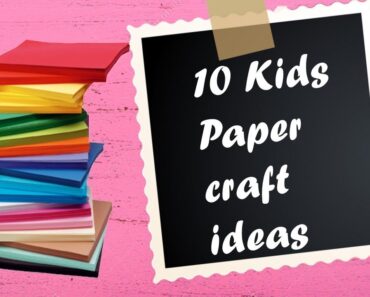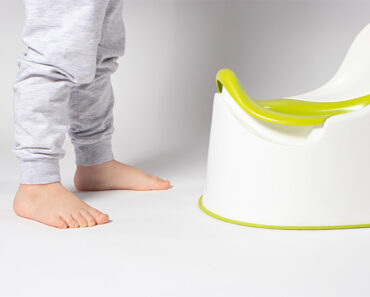Reading is a fundamental skill necessary for the cognitive, social, and emotional development of a child. Most children learn to read by six to seven years of age, while some learn it at three to four years (1). Engaging your child in playful reading from an early age can help boost their vocabulary and comprehension skills. These skills are essential for personal, academic, and professional development in the long run.
In this post, we share some engaging, age-specific reading games for kids to improve their skills.
Importance Of Reading For Children
Reading is an essential life skill that can help your child (2) (3)
- learn and practice diction and intonation and promote speech development.
- learn new words and their meanings, and use them in different scenarios.
- understand the basics of grammar and promote language development.
- improve their concentration and focus and enhance their overall brain function necessary for cognitive development.
- develop their imagination and creativity.
- learn about the world around them.
- improve their reading comprehension skills necessary for learning concepts that promote academic development (4).
Reading games and activities in a group setting or with family can help promote your child’s socio-emotional development and turn them into a responsible and confident adult.
20 Reading Games For Children
You could play these age-specific reading games with your child to make reading fun and enjoyable.
1. Spot the alphabet
The game helps your three-year-old identify and learn the letters of the alphabet, using a set of colorful flashcards.
- Show any two flashcards to your child and ask them to find a common letter in the two cards.
- Each pair of flashcards should have only one letter in common.
- The child compares the two cards to identify and recognize the common letter using their recognition and perception skills.
- Prompt your child to read the identified letter aloud to support speech and memory development.
Buy a Spot It! Alphabet card game or prepare one at home involving your three-year-old for more fun and joy.
2. Sequence letters
The joyful board game teaches phonics to children above four years, using colorful pictures. In the game, children get a board with printed pictures and a set of cards with letters written on them in uppercase and lowercase. Your child has to identify the picture, read the name of the object/thing aloud, and find a letter card that matches the sound of the word’s first letter. Regular practice of phonics helps develop your child’s vocabulary and spelling skills and hones their critical thinking skills.
3. Charades for kids
Charades is a fun group activity for children above four years of age. To play the game, you will need some plain papers and markers/pens to make chits.
- Make chits and write a word on each. Keep the children’s age and reading abilities in mind while writing the words.
- Fold the chits and put them in a bowl.
- Divide the children into two teams of three players each.
- Ask each team to take turns to send a teammate to pick a chit from the bowl.
- The child with the chit needs to act and give out clues to the word without uttering a word/making a sound, and their teammates have to guess the word.
Indulging in such activities can help improve their vocabulary skills, foster creativity, and provide ample opportunity for fun.
4. Scrabble boggle game
In this word-construction game, the child has to come up with as many words as possible by arranging and rearranging 16 letter cubes on a boggle grid within a set time. An electronic version of this game, known as scrabble flash, involves up to ten players, wherein they need to form words by swapping tiles. The word game could help improve your child’s vocabulary and spelling skills and hone their memory and logical thinking skills.
5. Junior scrabble
Junior scrabble is an engaging board game for teaching word construction to five-year-olds. The game involves forming words by identifying the picture on the board and placing the letters within the crossword in a predetermined order. Engaging in this memory-boosting game can improve your child’s vocabulary and spelling skills. Buy a scrabble or make one at home for hours of fun and excitement.
6. Riddle treasure hunt
Riddle treasure hunt aims to enhance reading, interpretation, and comprehension skills by prompting children to solve riddles in order to find a hidden toy/goodie hamper. You can make several chits with riddles written on them and hide them across the house. Hand over the first riddle to the child and instruct them to find the other hidden chits to solve a series of riddles to reach the hidden gift. Reading and understanding the riddles can help them hone problem-solving and analytical thinking skills.
7. Snake and ladders with words
The exciting DIY board game uses the rules of the classic snakes and ladders game to learn and remember words through visual perception. Take a snakes and ladders board and write age-appropriate and easy-to-understand words in each box using a pen/marker. The snakes and ladders board has 100 boxes to write 100 different words that you want your child to learn. Roll the dice and play the game as usual with an additional rule that requires your child to read aloud the word in which their counter lands.
8. Use the word
Train your child to read words and understand their proper usage in sentences with this unique game.
- Prepare some flashcards with plain paper and write an age-appropriate word on each using a pen/marker.
- Keep the cards on the table and ask your child to pick one card randomly.
- The task is to read the word written on the flashcard aloud, say its meaning, and use it in a sentence as an example.
This game is ideal for children aged six years and above. It can help improve their reading and comprehension skills, develop their vocabulary, and encourage them to frame simple sentences.
9. Hopscotch spelling bee
You can try this game with a large group of children, wherein each child represents a letter, and they all work together to form a word.
- Draw four hopscotch courts on the floor. Each court should have seven different letters from A to Z.
- Assign one letter to each child and make six kids stand at the edge of each box.
- Now, say a word aloud, for instance, “ARMOR,” and instruct the children to hop on the letter assigned to them in the order as they come in the word”ARMOR.”
- The child assigned with the letter “A” should hop first followed by the child with the letter “R,” and so on.
Involving your child in such activities can help develop their vocabulary and spelling skills.
10. I spy with words
It is an ideal reading game for six-year-olds. The game can help develop their reading skills, boost memory, and build focus and concentration.
- Select a story from a reading material, such as a storybook or comic.
- Based on the story, prepare a few questions having one- or two-word answers.
- Ask the child to read the story thoroughly within a given time to answer correctly.
- Once they have read the story, instruct them to take turns to ask each other questions.
- Every question should start with the phrase, “I spy something that I can … (kick/drink/eat).”
- The other students should guess the answer using the hints given in the text that they have read.
11. Word bingo
Children above five years of age can play this game to foster phonemic awareness, the ability to identify individual sounds in spoken words, and identify simple rhyming words.
- Paste different cutouts of words on a chart paper.
- Stick the chart paper to the wall, and ask your child some questions, such as “Which word on the chart rhymes with the word cat?” Or “What word rhymes with the word bowl?”
- The child has to identify the word in the chart with the word mentioned in the question.
Playing such reading games can help fine-tune your child’s perception and recognition skills, develop vocabulary, and promote logical thinking.
12. Take turns reading
In this game, you and your child take turns reading the paragraphs of a story. You can choose a storybook that your child likes to read or use their schoolbook. Help your child read with proper pronunciation and intonation. Take pauses after every three to four paragraphs, to discuss what the child has understood. It will help keep the child remain alert and focused.
13. Word search
Word search crosswords or puzzles involve tracing hidden words from letters arranged vertically, horizontally, and diagonally in a grid. Children between the ages of five and six can begin solving word search crosswords/puzzles to combat boredom and develop their vocabulary, reading, and recognition skills. Encourage your child to practice word search by participating in online/offline games or print some worksheets.
14. Fluency target
Draw four circles on the ground, each a feet apart from the other. Ask your child to stand within the first circle and read a paragraph within the given time. If the child reads it with proper pronunciation and intonation within the set time, they can pass the first circle and move to the second. If not, they have to reread the paragraph and try to do better. Guide your child on the mistakes that they make and hand-hold them to improve. The game can help develop the reading skills of children aged seven years and above.
15. Pirate island
It is an exciting board game for two to four players where the participants have to read short passages and answer questions on some details given on the board. The children need to answer each question to reach the treasure chest. You can buy this game or prepare one at home. For added fun and excitement, set a time limit to reach the treasure chest. Involving children aged above seven years in such games can help develop their reading and comprehension skills.
16. Word towers
Involve your six-year-old child in this entertaining game and help them frame sentences/phrases using blocks that have words written/pasted/printed on them.
- Take some plain white stickers and write nouns, verbs, adjectives, adverbs, pronouns, sight words, etc., on them.
- Paste one sticker on each Lego or Duplo block in random order.
- Once done, pass the blocks to your child and instruct them to make a tower.
- The tower should be built in such a way that it looks and reads like a sentence or phrase.
Engaging a child in such activities can help enhance their cognitive abilities and foster creative thinking.
17. Bringing stories to life
Assign a story from a storybook, comic, or textbook to your child, and ask them to prepare a skit. Provide them with all the necessary props that they would need to perform the skit efficiently. Involving children above six years of age in such activities can help improve their reading and comprehension skills, promote language development, foster creativity, and develop public speaking abilities.
18. Reading paintings
This artful and engaging activity provides an opportunity to display one’s reading and comprehension skills through painting.
- Provide a sketchbook, colors, and a printed passage to your child.
- Guide your child to read the passage/paragraph and recreate it in painting in their sketchbook using colors within the given time.
- Discuss the painting with your child to help them express feelings, emotions, and thoughts.
Such activities can help foster creativity, develop emotional intelligence, and hone your child’s reading and comprehension skills.
19. Dear diary
Keeping a diary can be an enriching experience, allowing children above seven years of age to express their feelings, thoughts, and experiences. Motivate your child to jot down their thoughts in the diary daily and read it aloud the next day with you. Reading a diary with a parent strengthens the parent-child bond, enables self-expression, and simultaneously improves their reading and writing skills.
20. Put the story together
Organizing information in a logical sequence is an important part of active reading for children above six years of age. In this interesting and engaging activity, your child needs to sort and arrange the story pieces written on different flashcards in a sequence to complete the story. Practicing story sequencing can enhance their reading comprehension skills and strengthen their logical reasoning and analytical thinking skills. You can get story sequencing worksheets online or prepare some at home for a great learning experience.
Encourage your child to participate in age-appropriate reading games from a young age. Guide them to identify areas of improvement and ways to perform better to hone their reading skills. You could gradually increase the reading time and complexity of reading activities as per your child’s age, interest, and learning capability.

































